Landscape Gardening in Stockwell
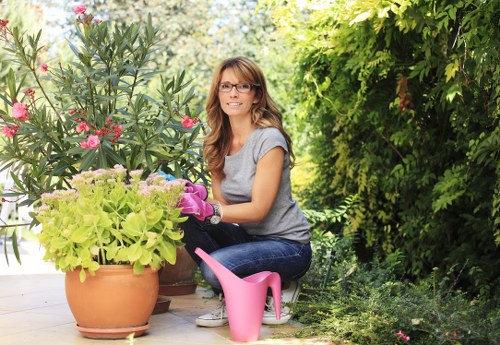
Introduction to Landscape Gardening in Stockwell
Landscape gardening in Stockwell is an art that combines creativity, functionality, and sustainability. Whether you're looking to transform your backyard into a serene oasis or enhance the curb appeal of your property, Stockwell offers a unique environment that requires tailored gardening solutions.
The diverse climate and soil conditions in Stockwell provide both opportunities and challenges for gardeners. Understanding the local ecosystem is crucial to creating a thriving garden that complements the natural beauty of the area.
In this comprehensive guide, we'll explore the essential aspects of landscape gardening in Stockwell, from selecting the right plants to implementing effective design strategies.
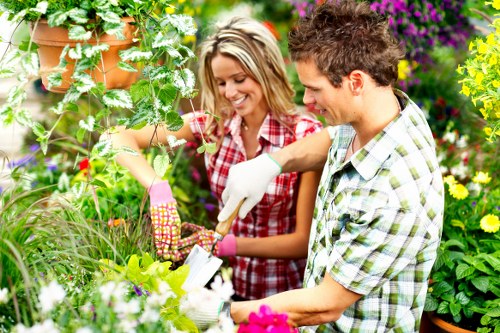
Understanding Stockwell’s Climate and Soil
Climate Considerations
Stockwell experiences a temperate climate with distinct seasons, including cold winters and warm summers. This variation requires gardeners to choose plants that can withstand temperature fluctuations and seasonal changes.
Rainfall in Stockwell is moderate, but occasional droughts can occur. Implementing water-efficient gardening practices is essential to maintain a lush landscape without excessive water usage.
Sunlight exposure varies across different parts of Stockwell, making it important to analyze your garden's orientation to maximize light for sun-loving plants while providing shade where necessary.
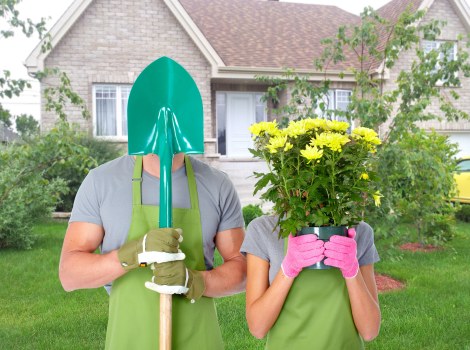
Choosing the Right Plants for Your Stockwell Garden
Native Plants
Incorporating native plants into your landscape is highly recommended. They are well-adapted to the local climate and soil conditions, reducing the need for extensive maintenance and irrigation.
- Lavender: Adds color and fragrance while attracting pollinators.
- Sedum: A hardy succulent that thrives in various conditions.
- Boxwood: Ideal for creating formal hedges and structures.
Using native species not only supports local biodiversity but also ensures a sustainable and resilient garden.
Perennials vs. Annuals
Deciding between perennials and annuals depends on your garden's goals and maintenance preferences. Perennials offer long-term beauty with less replanting, while annuals provide vibrant, seasonal color.
- Perennials: Hostas, peonies, and irises.
- Annuals: Marigolds, petunias, and zinnias.
A balanced mix of both can create a dynamic and ever-changing landscape throughout the year.
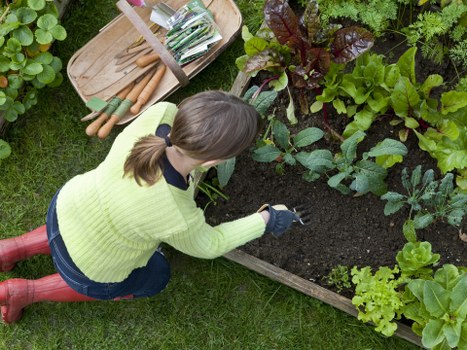
Designing Your Landscape
Layout and Structure
A well-designed landscape starts with a thoughtful layout. Consider the flow of movement, focal points, and the overall harmony of the space.
Incorporate pathways, seating areas, and focal features like fountains or sculptures to add interest and functionality to your garden.
Hardscaping Elements
Hardscaping involves the use of non-living elements such as stone, wood, and metal. Features like patios, decks, and retaining walls can enhance the structure and aesthetic appeal of your garden.
Softscaping Elements
Softscaping focuses on the living aspects of your landscape, including plants, flowers, and turf. Balancing hardscaping with softscaping creates a cohesive and inviting environment.
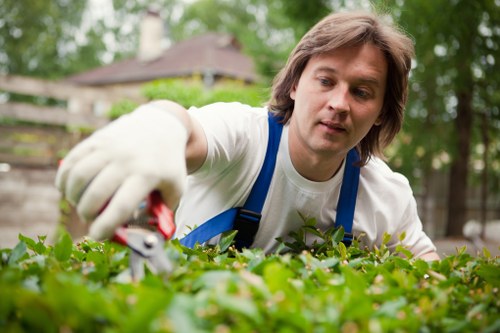
Maintenance Tips for Stockwell Gardens
Water Management
Efficient water management is essential in Stockwell's climate. Implementing drip irrigation systems and mulching can help retain soil moisture and reduce water waste.
Soil Health
Regularly testing and amending your soil ensures that plants receive the necessary nutrients. Composting and organic fertilizers can improve soil structure and fertility.
Pest and Disease Control
Maintain a healthy garden by monitoring for pests and diseases regularly. Using natural pest control methods and selecting disease-resistant plant varieties can minimize issues.
- Integrated Pest Management (IPM): Combines biological, cultural, and mechanical practices.
- Companion Planting: Planting certain species together to deter pests.
Pruning and Trimming
Regular pruning helps maintain plant health, encourages growth, and enhances the overall appearance of your garden. Focus on removing dead or diseased branches and shaping plants for desired aesthetics.

Seasonal Considerations
Spring Gardening
Spring is the perfect time to prepare your garden for the growing season. Start by clearing debris, planting new flowers, and applying fertilizers to promote healthy growth.
Summer Care
During the summer months, focus on watering, weeding, and providing shade for sensitive plants. Mulching can help retain moisture and keep roots cool.
Autumn Preparations
As temperatures drop, prepare your garden for winter by pruning plants, protecting sensitive species, and planting bulbs for spring blooms.
Winter Maintenance
While gardening slows down in winter, it's a good time to plan for the next season. Clean and store tools, and review what worked well and what needs improvement.

Incorporating Sustainable Practices
Organic Gardening
Adopting organic gardening practices reduces the use of synthetic chemicals, promoting a healthier ecosystem. Use organic fertilizers, compost, and natural pest control methods.
Rainwater Harvesting
Collecting rainwater for irrigation can significantly reduce your garden's water consumption. Install rain barrels or cisterns to capture and store rainwater.
Native and Drought-Tolerant Plants
Choosing plants that are native or drought-tolerant minimizes the need for excessive watering and maintenance, contributing to a more sustainable garden.

Enhancing Garden Aesthetics
Color Schemes
Selecting a cohesive color scheme can unify your garden design. Consider complementary colors or a monochromatic palette to create visual harmony.
Texture and Contrast
Incorporate a variety of textures and contrasts to add depth and interest. Mix different leaf shapes, plant heights, and structural elements to create a dynamic landscape.
Lighting
Outdoor lighting highlights key features, extends the usability of your garden into the evening, and enhances safety. Use a combination of ambient, task, and accent lighting for best results.
Pathway Lighting
Subtle pathway lighting guides visitors and adds a magical touch to your garden at night.
Spotlights and Uplights
Use spotlights to emphasize architectural features or focal points and uplights to add drama to trees and shrubs.

Utilizing Professional Services
When to Hire a Landscape Gardener
While DIY gardening is rewarding, certain tasks benefit from professional expertise. Consider hiring a landscape gardener for design, installation, and complex maintenance tasks.
- Design Consultation: Professionals can create tailored garden plans that maximize your space and meet your aesthetic goals.
- Installation Services: Ensure proper planting, hardscaping, and system installations.
- Maintenance Plans: Regular upkeep by experts can keep your garden in pristine condition year-round.
Choosing the Right Landscape Gardener in Stockwell
Look for professionals with local experience, a strong portfolio, and positive reviews. Ensure they understand the specific needs of Stockwell’s environment and can provide customized solutions.

Cost Considerations
Budget Planning
Establishing a clear budget is essential for any landscape project. Consider costs for materials, plants, labor, and ongoing maintenance.
Cost-Saving Tips
Implementing cost-effective strategies can help you achieve your dream garden without breaking the bank:
- Start Small: Begin with a manageable project and expand gradually.
- Recycle Materials: Use reclaimed materials for hardscaping elements.
- DIY Projects: Take on tasks you can handle to reduce labor costs.
Long-Term Investments
Investing in quality plants, sustainable systems, and durable materials can save money in the long run by reducing maintenance and replacement costs.

Garden Trends in Stockwell
Vertical Gardening
Maximize space and add a unique visual element with vertical gardens. Use trellises, wall-mounted planters, and green walls to grow plants upwards.
Edible Landscaping
Integrate fruit trees, vegetable beds, and herb gardens into your landscape for a functional and beautiful garden that provides fresh produce.
Wildlife-Friendly Gardens
Create habitats for local wildlife by planting native species, installing birdhouses, and providing water sources. This enhances biodiversity and adds life to your garden.

Conclusion: Transform Your Stockwell Garden Today
Landscape gardening in Stockwell is a rewarding endeavor that enhances your property's beauty and functionality. By understanding the local climate, choosing the right plants, and implementing effective design and maintenance strategies, you can create a stunning and sustainable garden.
Whether you're starting from scratch or looking to revitalize an existing space, professional guidance and a thoughtful approach can help you achieve your gardening goals.
Contact us today to begin transforming your outdoor space into the garden of your dreams.